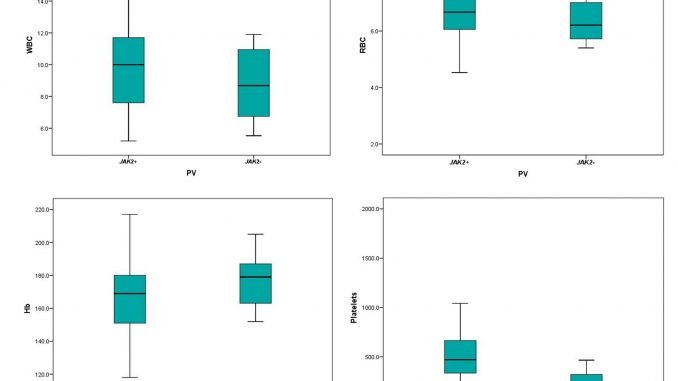
Myeloproliferative neoplasms are blood diseases that affect the normal production of blood cells in the bone marrow. According to the World Health Organization (WHO) classification, myeloproliferative neoplasms are divided into 4 major types. These include: chronic myeloid leukemia, polycythemia vera, essential thrombocythemia, and primary myelofibrosis.
Over the last several years, there have been new research findings regarding the pathogenesis and diagnosis of polycythemia vera, essential thrombocytopenia, and primary myelofibrosis. Among others, new mutations have been identified such as CALR type 1 and type 2.
The group of researchers from Bosnia and Herzegovina analyzed the effects of three main gene mutations in myeloproliferative neoplasms: JAK2, CALR and MPL in their paper published in BJBMS.
The researchers aimed to figure out if mutations in these genes will affect the clinical presentation. They analyzed the clinical features, gene mutations, and survival of 138 patients with myeloproliferative neoplasms in the 18-years follow-up. The patients were divided into the groups according to the type of the neoplasm.
The results of their research revealed that each mutation left a specific hematological signature. However, that did not affect patients’ overall survival.
Reference:
Kurtovic-Kozaric A, Islamagic E, Komic H, Bilalovic N, Eminovic I, Burekovic A, Uzunovic A, Kurtovic S. The effects of mutational profiles on phenotypic presentation of myeloproliferative neoplasm subtypes in Bosnia: 18 year follow-up. Bosn J of Basic Med Sci. 2019; Available from: http://www.bjbms.org/ojs/index.php/bjbms/article/view/4391
Editor: Edna Skopljak
Leave a Reply